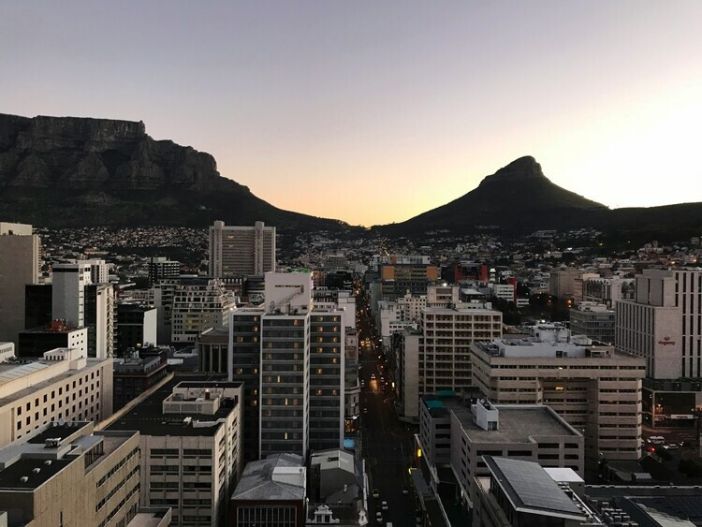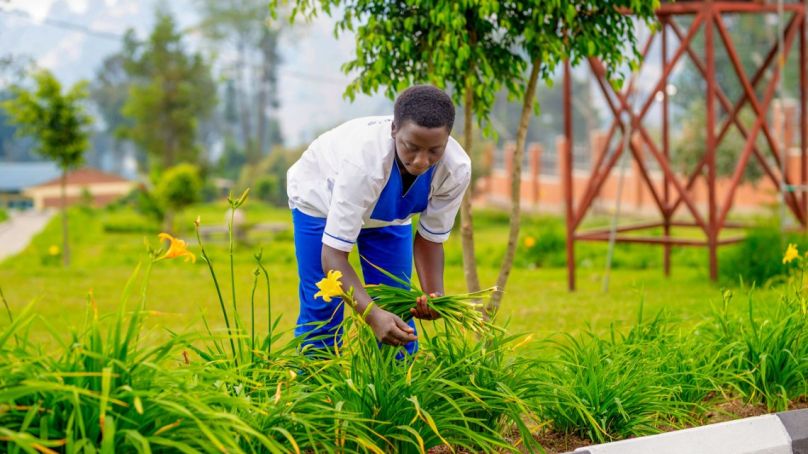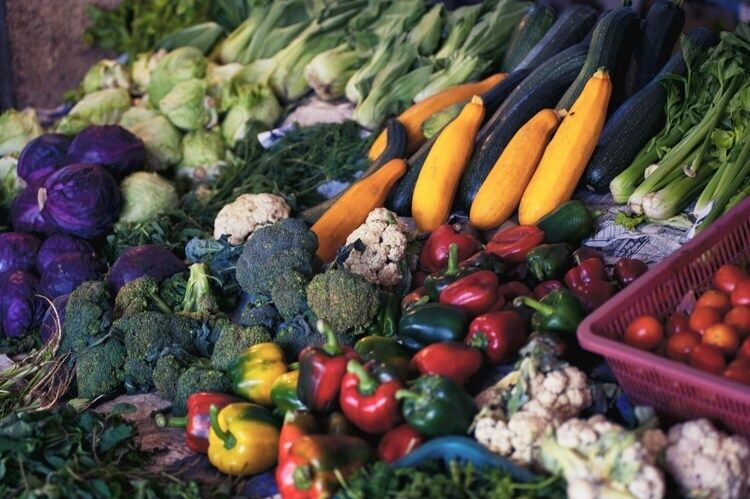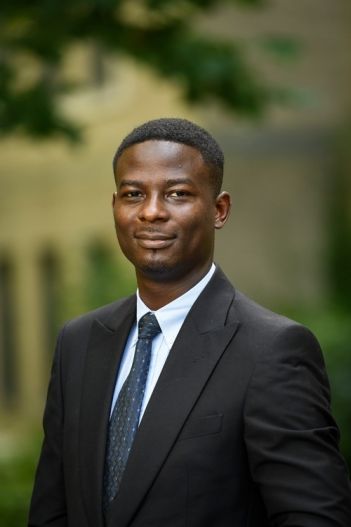Institute for African Development
IAD Spring 2025 Seminar: "Becoming 'Unlawful': Homeownership, housing bureaucracy, and the production of precarity in Eastridge, Cape Town, South Africa"

February 27, 2025
11:15 am
115 Sibley Hall
Becoming 'Unlawful': Homeownership, housing bureaucracy, and the production of precarity in Eastridge, Cape Town, South Africa
Public Registration
Additional Information
Program
Einaudi Center for International Studies
Institute for African Development
Politics, Markets, and Governance - A conference in honor of Nicolas van de Walle
May 8 - 9, 2025 Cornell University Ithaca, NY
This conference honors the legacy of Nic van de Walle who has shaped the field of political science, and African politics in particular, in substantial and important ways. His insights into the politics of economic policymaking and “permanent crisis”, the driving forces of regime dynamics, electoral politics, and democratic transitions continue to underpin the foundations of comparative politics.
Call for Papers
We welcome colleagues to submit proposals on these core themes of African political economy, regimes, and modes of electoral and social participation and contestation. We also welcome the extension of these foundational principles into new domains that they shine light on, but did not take up directly, such as the security challenges and roles of international organizations.
With NGO, Alums Boost Rwandan Smallholder Farmers

Edward Mabaya, IAD
“It’s truly rewarding to see Walisha come to fruition,” said Edward Mabaya, research professor in global development in the College of Agriculture and Life Sciences and adviser for Annan and Corkern’s capstone project. “It’s a pleasure to support such bright and driven young minds who share a passion for making a meaningful impact on Africa’s agricultural value chains.”
Additional Information
Demographic and Health Survey Program and The New Nutrition Team - Thursday, Nov. 21 11:15am 109 Ives Hall

Rukundo Kambarami Benedict is an experienced nutrition researcher currently serving as the Lead Nutrition Research Associate at The Demographic and Health Surveys (DHS) Program since August 2017. In this role, Rukundo analyzes national datasets and authors reports to guide nutrition policy and programs. Prior to this, she was a Postdoctoral Research Associate at Cornell University, where research focused on breastfeeding practices in South Asia and the quality of maternal nutrition counseling. Rukundo's academic journey includes a PhD from Cornell University, where teaching and research on nutrition and health were key components, and a Master of Science in Public Health from Johns Hopkins University. Early experiences included a role as a Research Assistant for a WHO/Johns Hopkins collaboration and various research positions at the Zvitambo Institute, further emphasizing Rukundo's dedication to advancing nutrition and public health interventions.
Shifting Landscapes: A Conversation with the Cornell Community on Migration and Trump-Era Policy Changes

November 21, 2024
12:00 pm
The recent U.S. election is likely to have significant impacts on immigration policy and practices. Based on experience with the previous Trump administration and standing efforts among Republicans in Congress, these changes may impact Cornell students, staff, and faculty. Join Cornell’s Migrations Program in a conversation about the current state of immigration policy.
This is a virtual-only meeting open to Cornell faculty, staff, and students. Registration is required.
Panelists
Shannon Gleeson, School of Industrial and Labor Relations and Brooks School of Public PolicyLaura Taylor, Director of International ServicesStephen Yale-Loehr, Cornell Law SchoolModerator
Wendy Wolford, Vice Provost for International Affairs and Robert A. and Ruth E. Polson Professor of Global Development in the College of Agriculture and Life SciencesHost and Sponsors
The Migrations Program, part of the Mario Einaudi Center for International Studies, builds upon the work of Migrations: A Global Grand Challenge to inform real-world policies and outcomes for populations that migrate.
Additional Information
Program
Einaudi Center for International Studies
Migrations Program
Reppy Institute for Peace and Conflict Studies
East Asia Program
Southeast Asia Program
Latin American and Caribbean Studies
Institute for African Development
Institute for European Studies
South Asia Program
The Demographic and Health Survey Program and The New Nutrition Team

November 21, 2024
11:15 am
109 Ives Hall
Rukundo Kambarami Benedict is a highly experienced nutrition researcher currently serving as the Lead Nutrition Research Associate at The Demographic and Health Surveys (DHS) Program since August 2017. In this role, Rukundo analyzes national datasets and authors reports to guide nutrition policy and programs. Prior to this, Rukundo was a Postdoctoral Research Associate at Cornell University, where research focused on breastfeeding practices in South Asia and the quality of maternal nutrition counseling. Rukundo's academic journey includes a PhD from Cornell University, where teaching and research on nutrition and health were key components, and a Master of Science in Public Health from Johns Hopkins University. Early experiences included a role as a Research Assistant for a WHO/Johns Hopkins collaboration and various research positions at the Zvitambo Institute, further emphasizing Rukundo's dedication to advancing nutrition and public health interventions.
Public Registration
Additional Information
Program
Einaudi Center for International Studies
Institute for African Development
Information Session: Laidlaw Research and Leadership Program

December 4, 2024
5:00 pm
Uris Hall, G08
The Laidlaw Undergraduate Leadership and Research Program promotes ethical leadership and international research around the world—starting with the passionate leaders and learners found on campuses like Cornell. Open to first- and second-year students, the two-year Laidlaw program provides generous support to carry out internationally focused research, develop leadership skills, engage with community projects overseas, and become part of a global network of like-minded scholars from more than a dozen universities. We’ll also share tips for approaching potential faculty research mentors and writing a successful application.
Can’t attend? Contact laidlaw.scholars@cornell.edu.
***
The Mario Einaudi Center for International Studies hosts info sessions for graduate and for undergraduate students to learn more about funding opportunities, international travel, research, and internships. View the full calendar of fall semester sessions.
Additional Information
Program
Einaudi Center for International Studies
Reppy Institute for Peace and Conflict Studies
East Asia Program
Southeast Asia Program
Latin American and Caribbean Studies
Institute for African Development
Institute for European Studies
South Asia Program
Migrations Program
Global Internships and Laidlaw

Students Showcase International Work
Over 70 undergraduates learned career-shaping lessons in the field last summer. Find out how to apply for 2025 Global Internships and Laidlaw.
Additional Information
Advancing Digital Agriculture in Nigeria: Innovations, Scalability Challenges, & Policy-Interventions

November 20, 2024
12:20 pm
Warren Hall, 175
Fall 2024 Harry ’51 and Joshua ’49 Tsujimoto Perspectives in Global Development Seminar Series
Register to attend via Zoom.
Abstract
Agriculture remains integral to Nigeria’s economy, accounting for 24% of the GDP and employing 38% of the workforce. Despite this, widespread multidimensional poverty impacts millions reliant on agriculture for their livelihoods. Driven by rapid adoption of mobile phones and increased access to internet connectivity, digital agriculture (DA) promises to unlock opportunities to boost productivity, enhance food security, and build resilience against climate crises. DA innovations such as mobile-based extension models, digital marketplaces, financial solutions, and shared mechanization services, offer smallholder farmers tools to sustainably improve yields, reduce losses, and optimize resource use. However, as an emerging sub-sector, DA in Nigeria faces key barriers, including inadequate infrastructure, limited access to finance and weak policy and regulatory environment. Based on ongoing research with several faculty members at Cornell University, this seminar explores Nigeria’s DA ecosystem, highlighting innovative use cases, scalability challenges, and critical policy interventions needed to advance digital transformation in agriculture.
About the speaker
John B. Babadara is a development expert with about a decade of experience working to transform agrifood systems in Africa. He has led and supported complex, multi-stakeholder programs that create value and spur innovation in agriculture, climate adaptation, circular economy and rural entrepreneurship in Africa. He is the co-founder and managing partner of AceAgric Agritech, a management consulting firm, and the founder of Tomatrix Postharvest Innovation for Nutrition (TOPIN), a social enterprise which addresses rural poverty and food loss through value-added agro-processing. John champions sustainable development through policy intervention, innovation management and social entrepreneurship. In recognition of his significant contributions to agrifood systems in Nigeria, he was awarded the Hubert H. Humphrey Fellowship at Cornell University in 2022 by the US Department of State. Babadara holds a BSc. (ED) in Biology from the University of Ilorin, Nigeria and a Master’s degree in Development Studies from the Federal University of Dutsin-MA, Nigeria.
Seminar co-sponsors
Cornell Institute for Digital AgricultureInstitute for African Development in the Cornell Einaudi Center for International StudiesAbout the seminar series
The Harry ’51 & Joshua ’49 Tsujimoto Perspectives in Global Development Seminar Series showcases innovative approaches to development with experts from around the globe. Each year, the series attracts online registrants from over 45 countries and more than 350 organizations.
Seminars are held Wednesdays from 12:20-1:10 p.m. eastern time during the semester in 175 Warren Hall. Students, faculty and the general public are welcome to attend in-person or via Zoom.
The series is co-sponsored by the Department of Global Development, the Department of Natural Resources and the Environment, the Charles H. Dyson School of Applied Economics and Management, and the School of Integrative Plant Science as part of courses GDEV 4961, AEM 4961, NTRES 4961, GDEV 6960, AEM 6960, and NTRES 6960.
Additional Information
Program
Einaudi Center for International Studies
Institute for African Development

